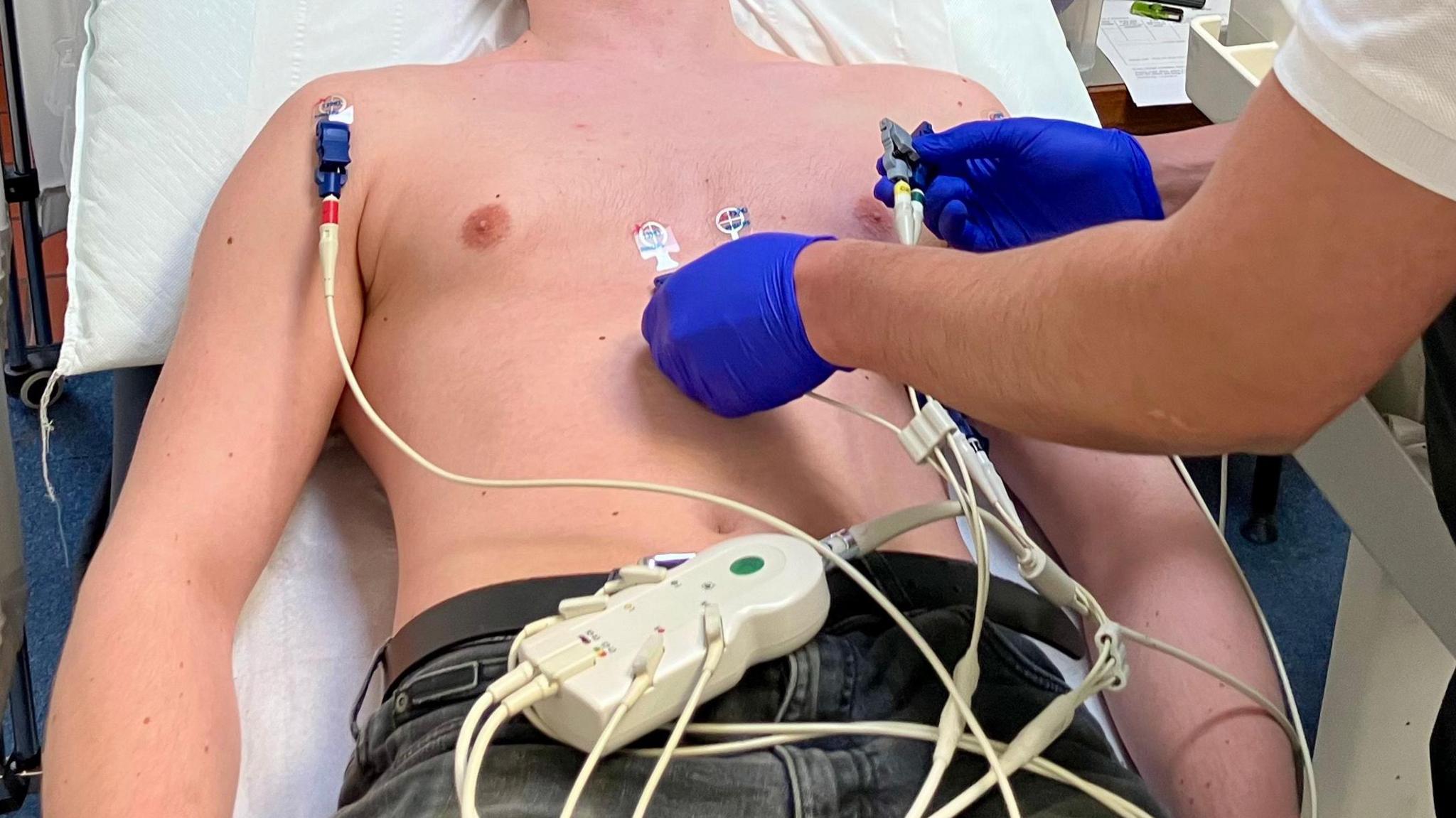'My wife went to bed after a nightshift and never woke up'
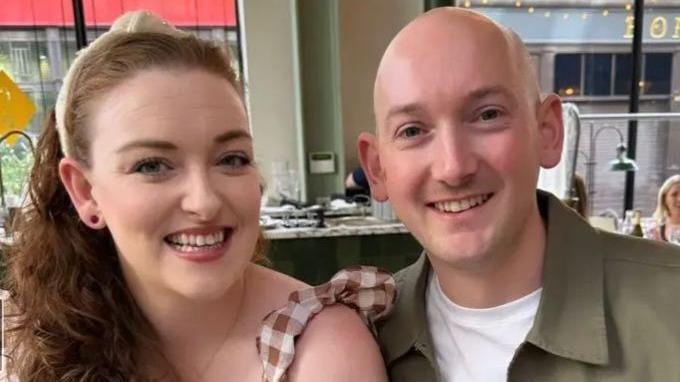
Dale Lockwood lost his wife Ruby to sudden arrhythmic death syndrome when she was 31 years old
- Published
Dale Lockwood's wife died suddenly from an undiagnosed heart condition when she was 31. Now he is urging others to talk about heart health as part of a campaign to raise awareness of the "devastating impact" such conditions can have.
"I miss everything about Ruby," says Dale.
"She was the kindest, most selfless person in the world."
Ruby, from Batley, worked as a detective for West Yorkshire Police. In 2023, she went to bed after a nightshift and never woke up.
"We were just a normal family with our whole lives ahead of us when I walked out to work that day," Dale recalls.
"To live through the moment when your entire life and everything you've built just disappears in front of your eyes, there are no words."
Ruby, who had two young children, died from a condition called sudden arrhythmic death syndrome. She had never been diagnosed and had no symptoms.
"It's too late for Ruby and our family, but it might not be for someone else," says Dale.
He is now encouraging other people to talk to their families about hereditary heart conditions that could be passed down.
Dale asks: "Do we talk about conditions that affect the heart if someone is on blood thinners or has had a bypass operation?
"Is it just a case of, well, that's a 'them' thing?
"It could have genetic implications upon the rest of the family."
'Warning signs'
According to the British Heart Foundation (BHF), every three minutes someone in the UK dies from cardiovascular disease.
The charity says sudden arrhythmic death syndrome is when someone dies suddenly and unexpectedly from a cardiac arrest, external, but it is not clear what caused it.
The BHF says it usually happens when a "dangerously abnormal heart rhythm goes untreated".
Sindy Jodar, a senior cardiac nurse at the charity, says there are often no obvious symptoms.
"However, there might be some warning signs including palpitations, dizziness, feeling faint or having seizures," she says.
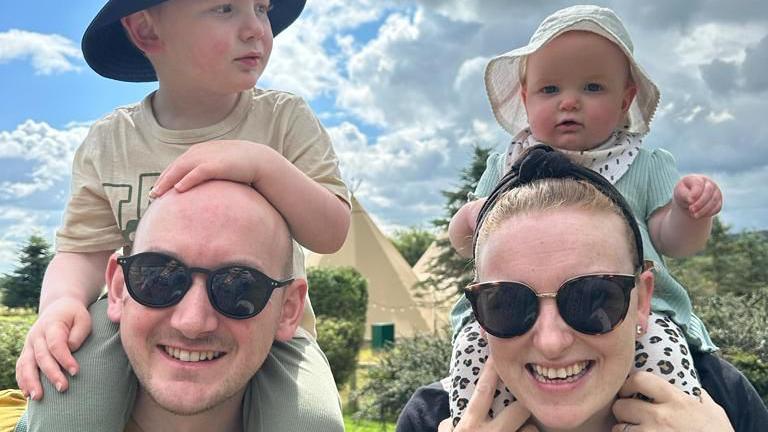
Dale says there was "nothing that made Ruby happier" than being a mum
Since Ruby died, Dale has turned to running marathons to raise money for private heart screening sessions.
"If by sharing our story we make a difference to just one family, then it makes Ruby's death mean something," he says.
"My closing statement at her eulogy was 'be more Ruby' - because the world would be a much brighter place if everyone was a little more like her.
"'Be more Ruby' has also become the strapline of my fundraising for the British Heart Foundation."
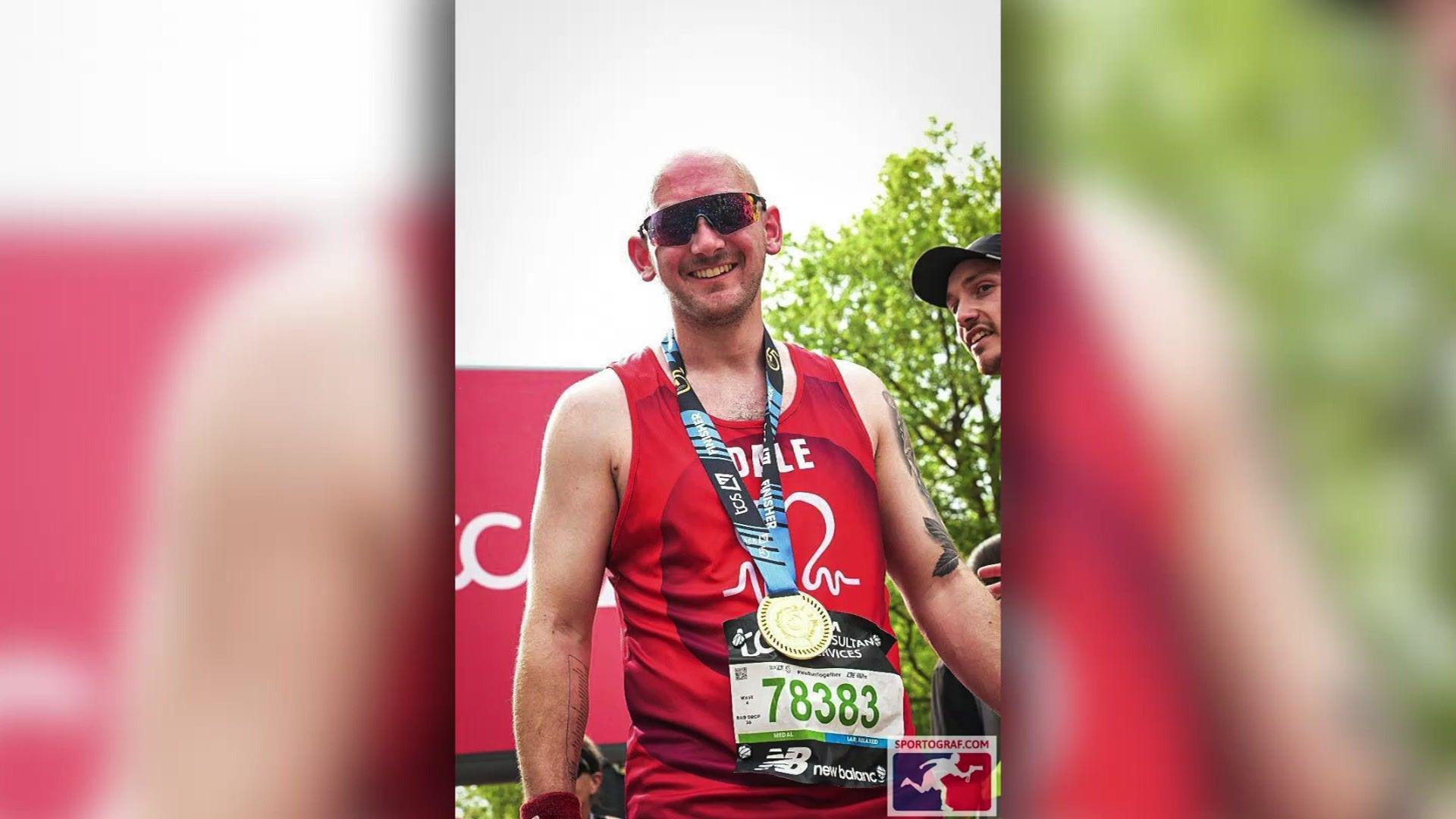
Dale is now fundraising for the British Heart Foundation in his wife's memory
Ahead of World Heart Day on Monday, a large-scale 3D timer has been installed on London's South Bank to show the reality that cardiovascular disease kills more frequently than people realise.
"I'm proud to support the British Heart Foundation's new campaign and hope that by sharing Ruby's story, we can raise more awareness of the devastating impact of cardiovascular disease," says Dale.
Get in touch
Tell us which stories we should cover in Yorkshire
Listen to highlights from West Yorkshire on BBC Sounds, catch up with the latest episode of Look North.
Related topics
Similar stories
- Published27 May
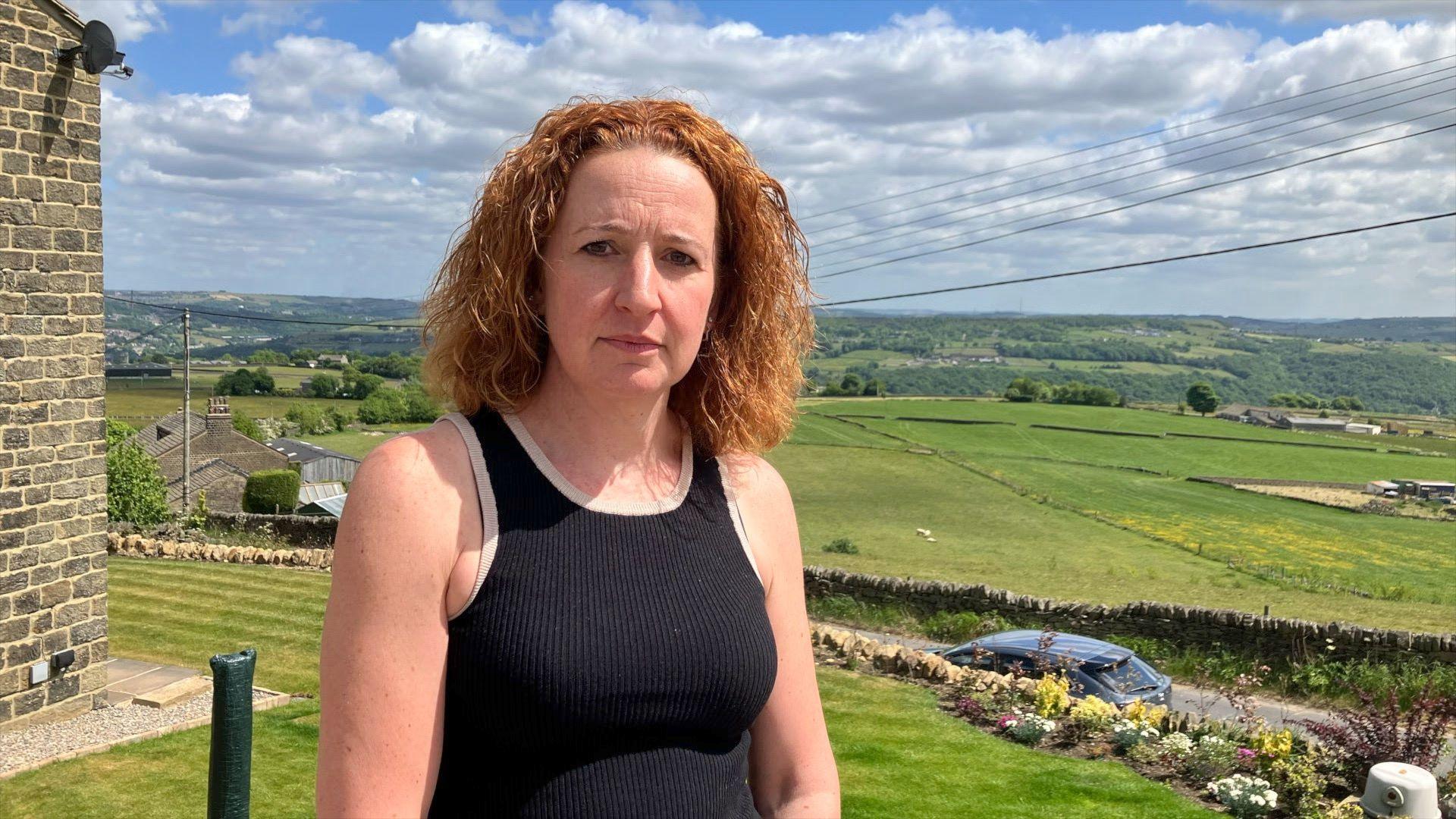
- Published30 April
